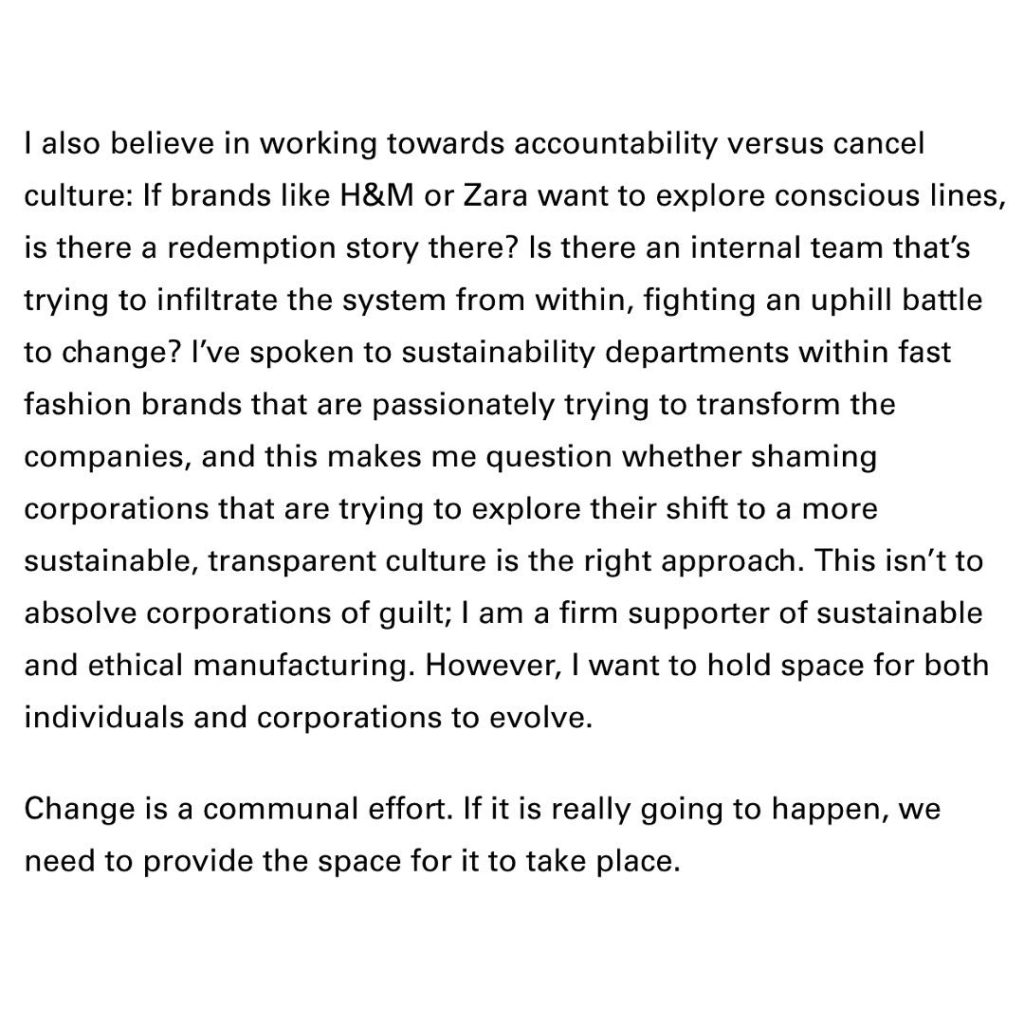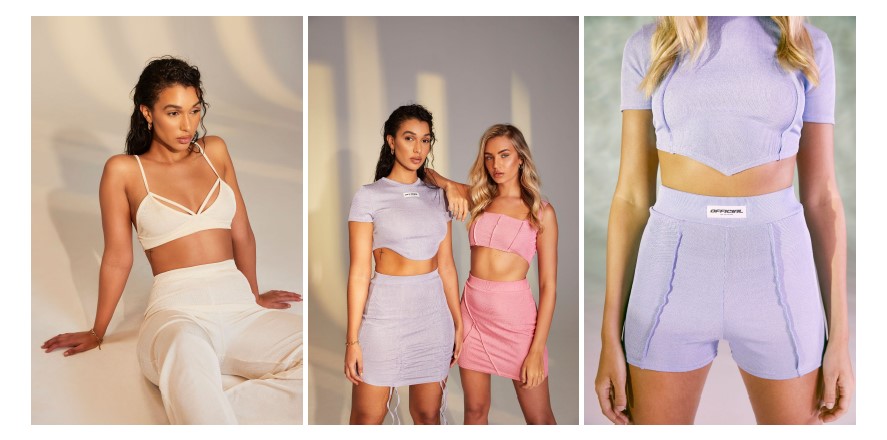START THE CONVERSATION
Are we too quick to cancel unsustainable brands? #cancelculture #sustainability #greenwashing #fastfashion Click To TweetA few days ago, environmentalist writer and content creator, Leah Thomas (@greengirlleah) posted a written piece on her Instagram entitled, ‘There Is No Such Thing As The Perfect Sustainability Activist’, and it got us thinking. In it, she discusses everything from the intersectionality of sustainable living to the ‘gentrification of thrifting’, a trend that has become increasingly popular within the slow fashion space. What really sparked our attention was the idea of accountability vs cancel culture when it comes to unsustainable brands. We’re all well aware of the ways in which brands deceive consumers with greenwashing tactics and shallow promises but if brands were genuinely trying to make changes, would we even know the difference? When brands like Boohoo come out with a ‘recycled’ collection or H&M with a ‘conscious’ line, we are often quick to call it out as a marketing stunt but should we be giving these brands more space to evolve? Does ‘canceling’ a brand have any real impact beyond social media hashtags and a few weeks of bad press or is there another way to hold brands accountable while still encouraging them to make positive change?


The case against cancel culture
The primary issue with cancel culture is that it closes off any opportunity for growth through healthy debate. In a world where our social feeds have become echo chambers of our own beliefs, it can be healthy to hear other perspectives once in a while, even if they do harshly differ from our own. Cancel culture promotes a habit of public shaming that leaves both individuals and brands afraid to ask questions, share their views or be wrong, making it incredibly difficult to take those first steps to a more sustainable future. If a brand does launch a sustainable line that is met with nothing but greenwashing accusations, low support, and low sales, it’s unlikely that the brand would invest more of its efforts into sustainable change. However, met with high praise and demand for more eco-friendly lines, any brand that intends to make a profit would be inclined to listen and change accordingly.

One of the main arguments in support of fast fashion, in particular, is the fact that it creates a sense of inclusivity, allowing those with a lower income to participate in trends and express their style. If those same consumers are also wanting to participate in sustainable living and cannot afford to buy from sustainable brands, a ‘conscious line’ from a fast-fashion brand might actually be a first step in the right direction.
We often consider voting with our wallets to mean only shopping from the brands who have already got it right but is there a version of this that extends to supporting the efforts of brands that are still a work in progress? Should there be?
The case for cancel culture
There are moments where cancel culture is necessary. Unfortunately, there are still a great number of brands that actively participate in greenwashing while conducting completely unethical practices behind the scenes. By praising these brands for doing the bare minimum, we run the risk of absolving them of guilt and leaving space for complacency. While there is indeed no such thing as the perfect sustainability activist, brands need to be held to a higher standard. From the BP oil spill to the Rana Plaza disaster, we’ve all witnessed the horrendous negative impact that just a handful of businesses can have on people and the planet. The companies involved in these scandals often have major funding and support behind them, meaning they have the power and therefore a responsibility to do better. When these brands actively choose not to, cancel culture can be an effective tool to push for change more aggressively. From this perspective, cancel culture is actually nothing new. It is merely just another form of protest that prioritises the good of many over the discomfort of the few. Protests have long been used to bring about effective reform, from the #MeToo movement to the worldwide George Floyd protests in lockdown last year. Canceling brands that are slow or opposed to making sustainable changes might just be the necessary collateral damage needed for long-term progress to be made.

While it is important to support the genuine efforts of brands trying to do better, it is also important to be discerning of businesses that could be doing more but choose not to. Deciding which brands to support can be complicated at times but that’s why Veo exists. We know that there are plenty of independent, sustainable brands out there proving that it is possible to be profitable while still having a positive impact. We’ve done our research so you don’t have to, making it easier than ever to support the brands that are doing good in the world.
Explore our curated collections in Fashion, Food, Beauty, and Home, and rest assured you’ll never have to compromise on your style, taste, or lifestyle.